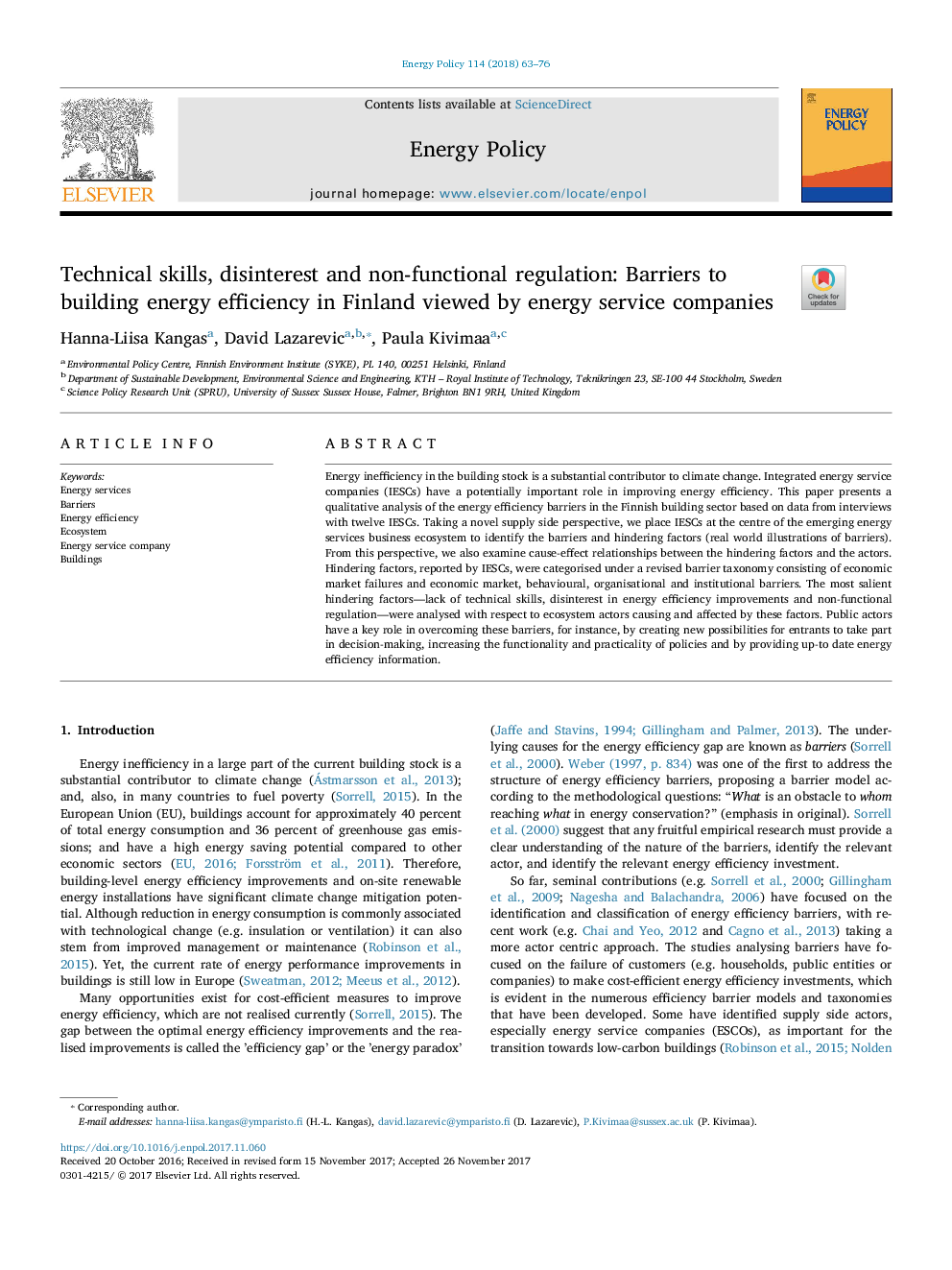ترجمه فارسی عنوان مقاله
مهارت های فنی، بی علاقه و مقررات غیر کارکردی: موانع برای ایجاد بهره وری انرژی در فنلاند توسط شرکت های خدمات انرژی مورد بررسی قرار می گیرد
عنوان انگلیسی
Technical skills, disinterest and non-functional regulation: Barriers to building energy efficiency in Finland viewed by energy service companies
| کد مقاله | سال انتشار | تعداد صفحات مقاله انگلیسی |
|---|---|---|
| 142795 | 2018 | 14 صفحه PDF |
منبع

Publisher : Elsevier - Science Direct (الزویر - ساینس دایرکت)
Journal : Energy Policy, Volume 114, March 2018, Pages 63-76
ترجمه کلمات کلیدی
خدمات انرژی، موانع، بهره وری انرژی، زیست بوم، شرکت خدمات انرژی، ساختمان ها،
کلمات کلیدی انگلیسی
Energy services; Barriers; Energy efficiency; Ecosystem; Energy service company; Buildings;

